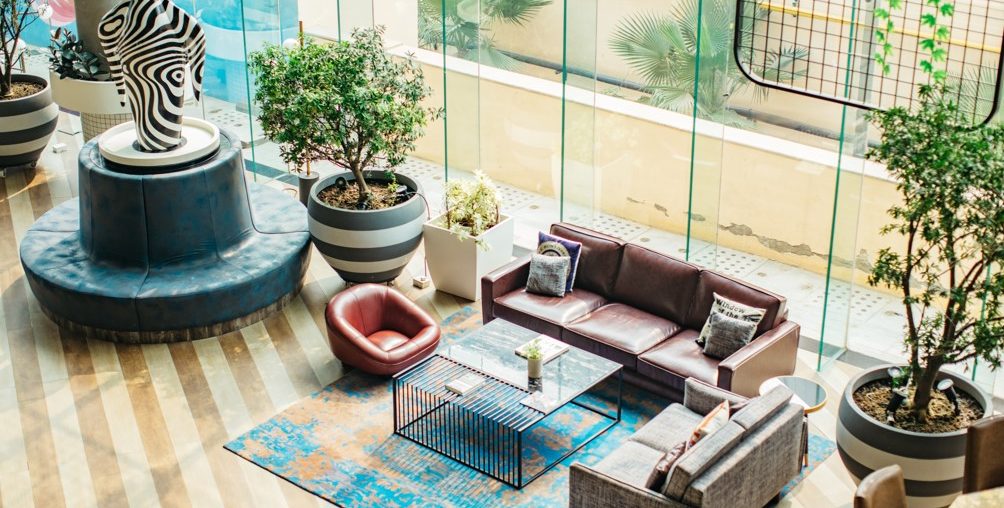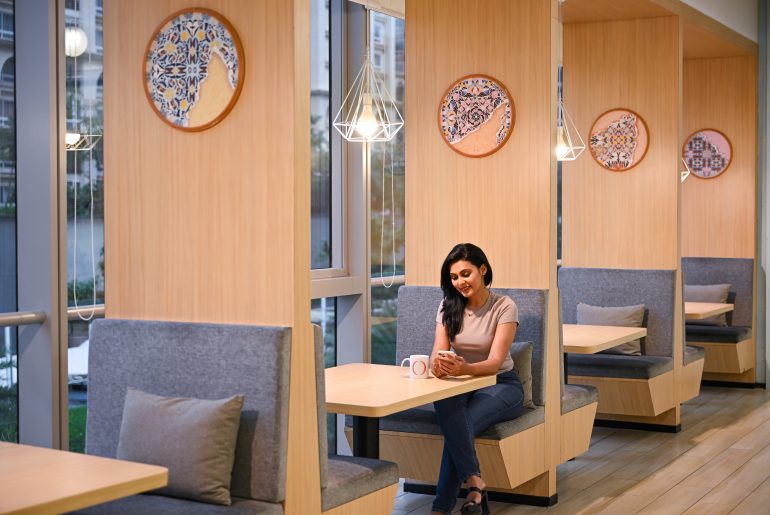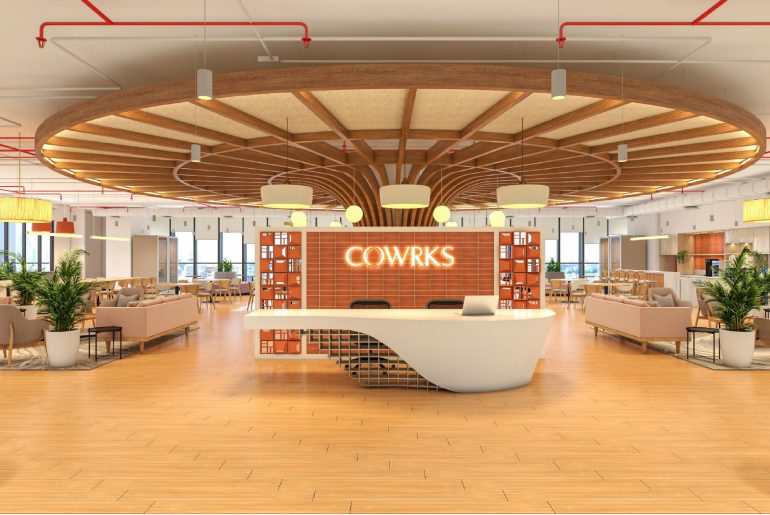Flexible Workspaces have evolved rapidly over the last decade. Initially, these were primarily used by freelancers and small start-ups that needed a low-cost space to work from. However, larger companies are now beginning to recognize the potential benefits of flexible workspaces for their employees that offer more freedom than traditional offices in terms of both layout and amenities. Employees can choose their own desks, chairs, and other furnishings that best suit their needs along with access to a range of communal areas such as Meeting Rooms, Lounges and even kitchenettes where they can socialize with colleagues or take a break when needed.
The future of Workspaces is ever evolving due to new technology and trends driving the way we work. One of the most significant changes to come in the rise of Flexible Workspaces is the customisation of workspaces according to the employees’ expanding needs. In 2023, these adaptive workspaces will become even more commonplace as businesses strive for greater efficiency and productivity.
Flexible Workspaces are designed to accommodate a variety of different working styles and preferences, from open-plan layouts to individual cubicles. This allows employees to customize their workspace according to their own particular needs, creating an environment that encourages collaboration while also allowing for personal comfort and privacy. In addition, advances in communications technology have made it possible for remote workers to stay connected at all times.
Benefits to Working Professionals
Many Indian professionals are now looking for balance between their work and personal lives. With the rise of technology, more and more people are now able to work remotely, enabling them to make use of flexible working hours that can benefit both their work-life balance and productivity.
Working from home or from a co-working space like COWRKS allows professionals to better manage their workload, as they can choose when to work and when to take breaks. This leads to improved concentration, an efficient use of time, better well-being and reduced stress levels, leading to increased productivity.
Benefits to Businesses
Flexible workspaces can also benefit businesses, as they can save money on office space rentals and other costs associated with having employees in the office. A key benefit is that businesses don’t need to commit to long property leases which makes it easier for them to scale up or down depending on their current requirements without incurring extra costs associated with renting physical office space. In addition, many flexible workspace providers offer additional services such as IT support or administrative help, which allows smaller companies who may not be able to afford dedicated staff members get access to expertise they require at an affordable rate.
Co-working spaces are often located in prime locations close to public transport links making them ideal for commuters who want easy access into the city centre while still having all the comfort and convenience of working from home – something that has become increasingly popular since the pandemic began due its cost efficiency and health benefits.
COWRKS coworking spaces in cities like Mumbai, Pune, Chennai, Delhi, Bengaluru and Hyderabad are ideal for professionals looking for flexible workspaces. Along with providing a professional and comfortable environment to work in, COWRKS also offers several amenities that makes it an ideal place for professionals.
The Trends:
The future of flexible office spaces is an exciting prospect. With the ever-changing nature of technology, it is hard to predict exactly how things will look in 2023. However, a few trends suggest the way flexible office spaces will evolve over the next five years. One trend that is likely to continue is “hot desking” or shared workspaces. Hot desking allows companies to save money on rent and utilities by having employees share desks and workstations instead of each one having their own personal desk space. Additionally, hot desking can also help create a more collaborative atmosphere as workers have easy access to colleagues from different departments or locations within the same building.
Another trend on the rise is the use of virtual reality (VR) for remote working purposes. This has already been used by some companies for remote meetings but its potential applications go far beyond this basic function. For example, with VR headsets, people could virtually tour offices before signing leases or explore new products before making purchase decisions all from their own home offices! This would enable businesses to offer more flexibility while still providing employees with an immersive experience that allows them to interact with peers in real-time regardless of physical distance between them.
Finally, artificial intelligence (AI) could play a major role in shaping up flexible office spaces too. This specifically through automation technologies such as chatbots and voice assistants which can take on mundane tasks such as booking meeting rooms or ordering supplies without human intervention thus freeing up time for more important tasks like strategizing business plans or brainstorming innovative ideas.
Conclusion:
The evolution of flexible workspaces has been a major development in the modern workplace. It is clear that this trend will continue to grow as businesses become more global and technologically advanced. All these trends suggest that flexible office spaces will become even more commonplace in 2023 allowing us greater freedom when it comes to our workspace choices while still maintaining high levels of efficiency through automated processes powered by AI systems & cloud computing platforms alike!
These type of workspaces will also provide companies with the flexibility they need to stay competitive and meet the changing needs of their employees. By providing employees with an environment that encourages collaboration, creativity, and productivity, businesses can be sure to remain successful in today’s ever-changing business landscape.






